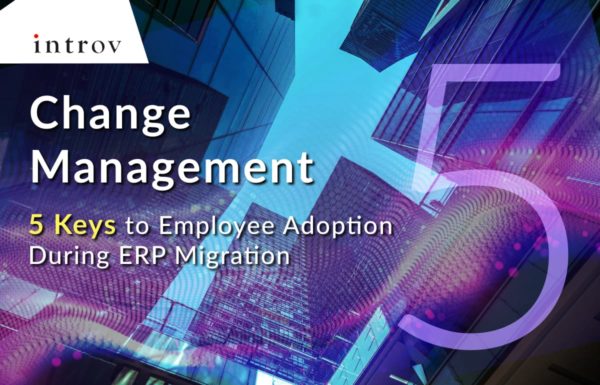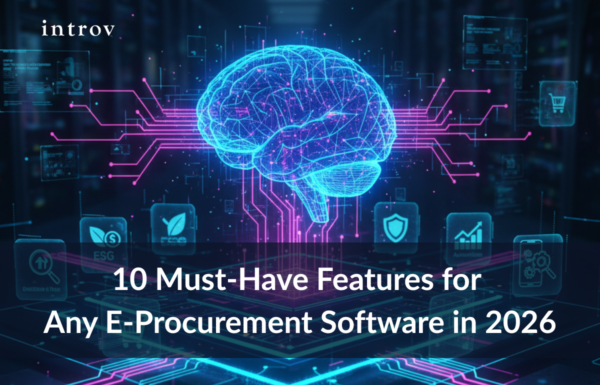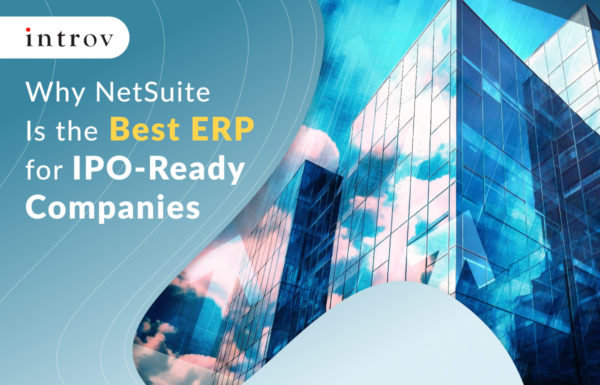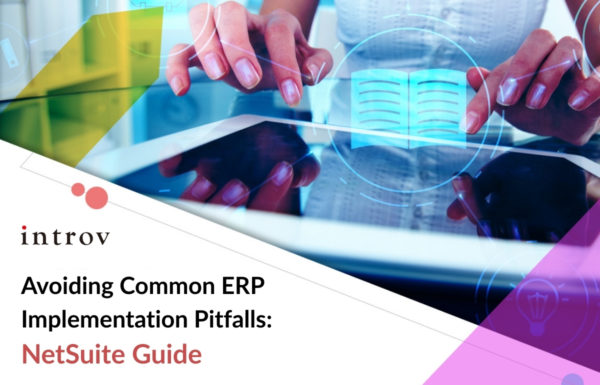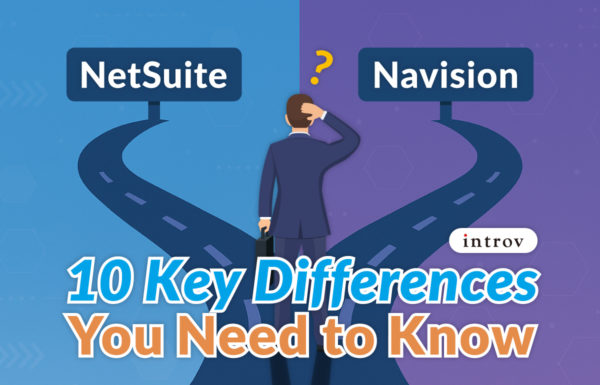In the rapidly evolving business landscape, staying competitive means optimizing processes, reducing costs, and making informed decisions swiftly. One of the most impactful tools to achieve these goals is an Enterprise Resource Planning (ERP) system. But what is the ROI of ERP, and how does it translate into tangible benefits for businesses? Let’s explore the comprehensive advantages of ERP systems, with insights from solutions like NetSuite, to unveil the substantial returns on investment they offer.
Understanding ERP Systems
An ERP system is an integrated software suite that manages a company’s core business processes in real-time. It includes modules for financial management, order management, supply chain management, and more, providing a unified view of business operations. This integration facilitates seamless data flow across departments, enhancing decision-making and operational efficiency.
Key Benefits Driving ROI
1. Increased Efficiency
ERP systems significantly boost operational efficiency by automating routine tasks. Automation can drastically reduce the time and effort required to complete processes such as order processing, inventory management, and financial reporting. For instance, automated invoice processing can expedite payment cycles, improving cash flow. This efficiency not only speeds up operations but also minimizes errors, leading to greater accuracy and reliability.
A report by Panorama Consulting Solutions reveals that businesses implementing ERP systems often see a 10-15% improvement in operational efficiency within the first year. This increase in efficiency directly translates into cost savings and enhanced productivity.
2. Cost Reduction
ERP systems can substantially cut costs in multiple ways. Firstly, by streamlining processes and reducing manual labor, companies can lower operational expenses. Secondly, enhanced inventory management reduces excess stock and minimizes storage costs. Additionally, better financial oversight can help identify and eliminate wasteful expenditures.
For example, improved inventory management through ERP can lead to a 20% reduction in inventory levels, as noted by a study from the Aberdeen Group. This reduction frees up capital and reduces storage and handling costs. Furthermore, by automating procurement and supplier management, businesses can negotiate better terms and reduce procurement costs.
3. Enhanced Decision-Making
With real-time data access and comprehensive reporting tools, ERP systems empower businesses to make informed decisions quickly. Accurate and timely information allows managers to respond swiftly to market changes, customer demands, and operational challenges. This agility can lead to more strategic planning and better resource allocation, ultimately driving growth and profitability.
For example, real-time financial reporting can provide insights into cash flow, profitability, and cost structures, enabling management to make proactive decisions. A study by Forrester Research found that companies using ERP systems experienced a 24% improvement in decision-making speed and accuracy.
Industry Applications
ERP systems are versatile and can be tailored to fit various industries. Let’s explore how different sectors benefit from ERP implementations:
- Healthcare: ERP systems can streamline patient management, billing, and compliance with industry regulations in the healthcare sector. This leads to improved patient care, reduced administrative costs, and better regulatory compliance.
- Retail: Retail businesses can optimize inventory levels, manage multi-channel sales, and improve customer service with ERP systems. Real-time inventory tracking ensures accurate stock levels, reducing stockouts and overstock situations.
- Manufacturing: ERP systems enhance production planning, quality control, and supply chain management in manufacturing. This results in reduced lead times, improved product quality, and lower production costs.
- Transportation & Logistics: For transportation and logistics companies, ERP systems enhance fleet management, route planning, and supply chain coordination. This leads to improved delivery times, reduced fuel costs, and better resource utilization.
NetSuite, a leading provider of cloud-based ERP solutions, offers specialized modules for these industries, ensuring businesses get the most relevant and effective tools for their specific needs.
Supporting Services
To maximize the ROI of ERP systems, NetSuite provides comprehensive Customer Success and Education Services. These services ensure that businesses not only implement the ERP system effectively but also continue to optimize its use over time. Training and ongoing support are crucial for maintaining high performance and adapting to evolving business requirements.
- Customer Success Services: These services include onboarding, implementation support, and ongoing optimization to ensure businesses derive maximum value from their ERP investment.
- Education Services: NetSuite offers a range of training programs to help users understand and leverage the full capabilities of the ERP system, including online courses, certifications, and in-person training sessions.
Partner Programs
NetSuite also offers a robust Partner Program, which includes services and support for partners. This program presents opportunities for individuals and organizations to become partners, expanding their service offerings and enhancing their market reach. By leveraging the expertise and resources provided by NetSuite, partners can deliver even greater value to their clients.
Measuring ROI
Measuring the ROI of an ERP system involves comparing the costs of implementation and operation against the benefits realized. Here are the key factors to consider:
1. Implementation Costs
These include the initial expenses associated with acquiring and setting up the ERP system. This can cover:
- Software Licensing: The cost of purchasing the ERP software itself.
- Hardware: Any new hardware required to run the ERP system.
- Consulting Fees: Costs for external consultants who help with the ERP implementation.
- Training: Expenses for training employees to use the new system.
- Customization: Costs for tailoring the ERP system to meet specific business needs.
2. Operational Costs
These are ongoing expenses that a company incurs while using the ERP system. They can include:
- Maintenance Fees: Regular fees for maintaining the ERP system.
- Subscription Costs: For cloud-based ERP solutions like NetSuite, there may be a monthly or annual subscription fee.
- Support Services: Costs for ongoing support and troubleshooting.
- Upgrades: Periodic costs for upgrading the system to newer versions.
3. Quantifiable Benefits
- These are direct financial gains that can be measured. They include:
- Cost Savings: Reduction in operational costs due to increased efficiency and automation.
- Revenue Growth: Increased sales and revenue through better inventory management and customer service.
- Inventory Reduction: Savings from reduced inventory levels and associated carrying costs.
- Improved Cash Flow: Faster invoicing and payment processes leading to improved cash flow.
4. Qualitative Benefits
While harder to measure, these intangible benefits significantly impact the overall ROI:
- Improved Employee Satisfaction: With routine tasks automated, employees can focus on more strategic activities, leading to higher job satisfaction.
- Better Decision-Making: Real-time data and comprehensive reporting enhance decision-making capabilities.
- Enhanced Customer Satisfaction: Improved order processing and customer service lead to higher customer satisfaction and loyalty.
5. Time to Value
This metric measures how quickly a company begins to see benefits from its ERP investment. A shorter time to value indicates a faster ROI. Factors influencing this include the complexity of the implementation, the effectiveness of the training programs, and the level of customization required.
The ROI of ERP systems is clear: increased efficiency, reduced costs, and enhanced decision-making all contribute to substantial financial returns. Solutions like NetSuite not only offer these benefits but also provide industry-specific modules and comprehensive support services to ensure long-term success. By investing in an ERP system, businesses can unlock new levels of performance and value, positioning themselves for sustained growth in an increasingly competitive market.


